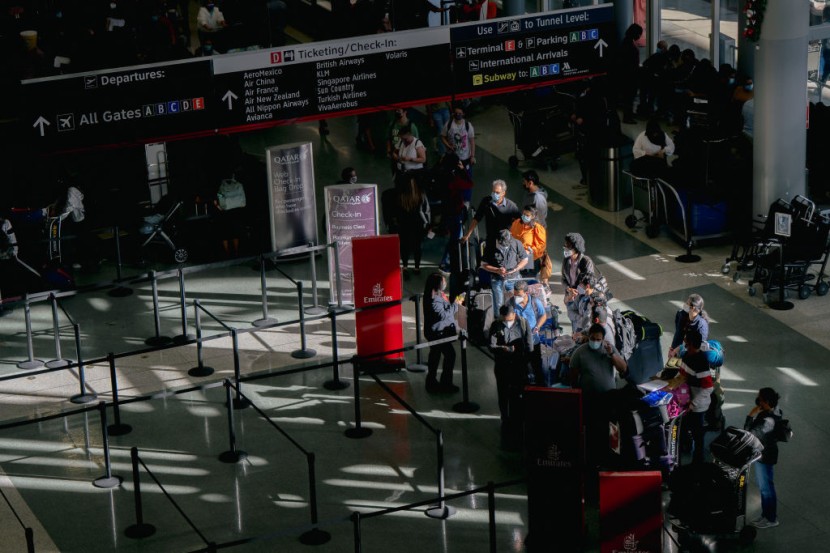
The continued spread of COVID-19 across the US has already impacted travel, education, and health services across states.
According to Tom Cotter, director of emergency response and preparedness at the health nonprofit organization Project HOPE, the pandemic has caused "major disruptions" in the everyday life of people, and its extraordinariness drives health services in limbo.
"And the unfortunate reality is, there's no way of predicting what will happen next until we get our vaccination numbers - globally - up," he said.
The current rapid spread of COVID-19 is fueled by the now-dominant omicron variant, a strain that is milder but more contagious, according to experts, as per Associated Press.
A previous study showed that it could infect individuals who have been vaccinated and those infected in the past. However, it is likely to cause severe conditions and death compared to the delta variant, which is still the dominant variant globally according to WHO.
However, its high transmissibility shoots up the cases in the US that already impacted most government services nationwide.
Overwhelmed Health Services
In the University of Kansas Hospital, the number of COVID-19 patients shot up from 40 on December 1 to 139 on Friday. It coincides with the increased number of hospital employees getting infected of 900 or 7% of the medical facility's workforce of 13,500.
The situation has also become a serious challenge for ambulances during emergencies. Most times, they have been forced to change course when their destination hospital informs that it is already in full capacity and overwhelmed to accommodate patients, which increases the anxiety of family members behind.
In Boise, Idaho, pharmacies are understaffed because employees got sidelined by the disease or have already left their jobs. The situation resulted in long lines of customers outside drugstores, as demands for medications also increased.
In New York City, staff shortages in its sanitation department and The Metropolitan Transportation Authority have caused delays in trash collection and subway transportation. The situation forces the remaining personnel to work overtime.
In Los Angeles, not less than 800 police and fire personnel got down with the sickness causing delays in emergency response, according to the Los Angeles Times.
According to TSA official statement, the Phoenix Sky Harbor International Airport, the busiest terminal in Phoenix, forced the shutdown of its two checkpoints due to the lack of Transportation Security Administration agents.
Understaffed Schools
Schools nationwide also face the challenge of staff shortage as thousands of educators are calling in sick, forcing some districts to return to remote learning setups.
In San Francisco, 900 teachers and aides were absent on Thursday. While in Chicago, the school district and teachers' union engaged in an intense stand-off over health safety protocols that led to the cancellation of classes for three days, as per CNN.
In New Haven, Connecticut, school administrators have substituted for hundreds of absent teachers. Though many educators appreciate the action, others said it could confuse students who are already suffering from stress due to the COVID-19 pandemic.
Related Article: Return Of Remote Classes Drives US Families Frustrated








